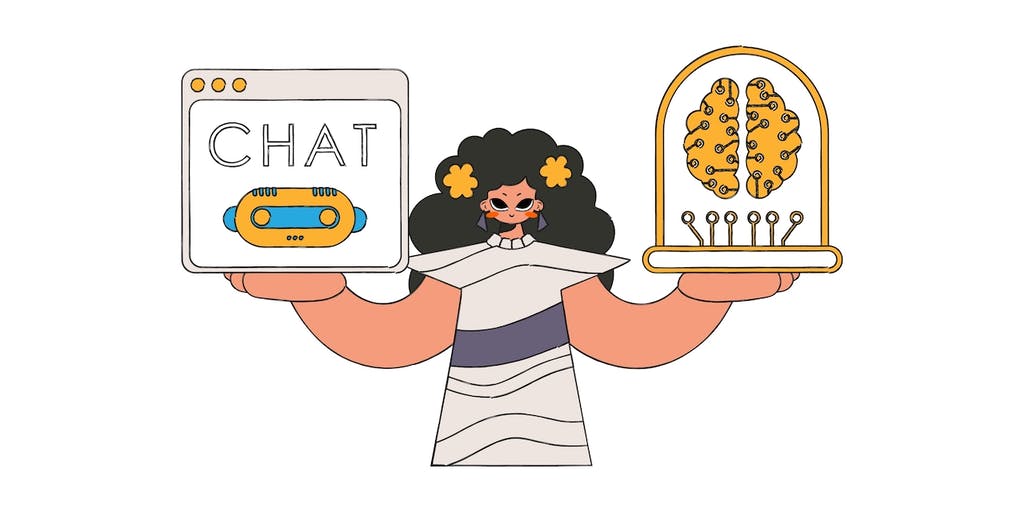

Higher Ed Should Pay Attention to the Corporate World’s Growing Use of Skills Data
Employers these days are moving to skills-based hiring — looking for signs that candidates have specific abilities rather than just checking for a college degree as a default qualification.
The embrace of competencies over credentials is driven by ongoing shortages of talent in many sectors, which was underlined just last week, when the U.S. Department of Labor reported a near-record 9.5 million job openings and a robust employment situation.
And government leaders are also pushing the trend: many state governors, for instance, have adopted skills-based hiring for state positions, and the U.S. House of Representatives’ Education and Workforce Committee is giving the approach attention.
Even with the momentum for skills-based hiring, though, degrees continue to be in demand and rewarded by employers with higher salaries. However, the educational alternatives to degrees, including various types of microcredentials, continue to grow — in part because they are more affordable, are often better connected to the needs of employers, and also because they are highly accessible and digitally delivered.
The bigger story often lost in the artificial “skills versus degrees” debate, however, is about how quickly employers are continuing to evolve their hiring practices with new technologies. These changes will have a potentially wide impact on higher education, opening up new opportunities, but also some potential challenges.
A Watershed Moment
We are living in a new era of rapid job-market change and continuous upskilling. Just as colleges and universities have found themselves adapting to this environment in recent years and embracing digital learning, employers are increasingly rethinking their business strategies as technological changes impact how they think about, acquire and develop their employees.
Anyone who has applied for a job in the last two decades is aware of the prominent role that applicant-tracking systems and resume-scanning technologies play in determining which candidates make it into the hiring pipeline. However, the human resources function has historically lagged behind other business areas in adopting data-driven approaches.
The COVID-19 pandemic accelerated the shift toward digital HR. Today, new technologies are reshaping employers’ talent strategies and hiring processes, including the growing use of AI-based recruitment tools, skills assessments and internal talent marketplaces. Advanced algorithms and AI are increasingly being applied to analyze the skills, experiences and credentials of workers — and even inferring what skills individuals may have based on large datasets.
These developments in the corporate world have several implications for higher education — especially in terms of institutions’ alignment with job-market needs; the employability of graduates; and the opportunity to engage employers and new types of technology partners.
First, it is important for higher ed to recognize that digital credentialing — which can provide richer, more granular and machine-readable data on learning outcomes and skills — should not be limited to the discussion about non-degree “alternative credentials” and digital badges. Growing numbers of institutions are incorporating microcredentials into their degree programs at all levels (from associate and bachelor’s to Ph.D.’s), as well as into continuing education activities and other educational experiences. Increasingly, graduates (and the employers who hire them) will come to expect the ability to digitally document and present their learning achievements, skills and experiences — and the market will demand that this information is readable and compatible with various systems in the world of employment.
As colleges and universities continue to confront digital transformation, they must ask themselves, ‘What does our core product — the educational credential — evolve to look like in a more data-rich, technology-centric world?’
This new horizon of microcredentials and digitized skills data will require an evolved edtech infrastructure — some of which is incremental, and some of which is more substantial. A number of learning management system platforms and student information systems already support these trends, while others do not. And a growing number of specialized software providers now focus on issuing digital credentials or helping with job placement and experiential learning.
Despite the responsiveness and interest of many software companies and other stakeholders, there are still significant gaps to be closed in making the connection between educational credentialing and hiring more seamless — especially in terms of interoperability and ensuring that skills data is standardized and machine-readable.
In recent years, many colleges have made growing use of real-time labor market analytics to keep up with changes in the workplace and potentially “tune” their curriculum to new job-market developments. With the corporate world increasingly approaching hiring and training from a skills-centered perspective, it will be increasingly important to consider and track how curriculum and course outcomes map to widely accepted skills taxonomies — and to consider how new skills technologies might help students better articulate and communicate their acquired skills to employers.
Higher ed leaders should also be mindful that while many employers are racing to manage talent at the finer-grained “skill” level, there remains great value in the educational credential as a meaningful package that reflects a broader curriculum and expert assessment. That is, when the educational credential is thoughtfully designed and competitive with the alternatives.
The fast growth of non-institutional providers and other programs operating at the skill level may even introduce a role for colleges to play in evaluating skills proficiency or in validating skills developed elsewhere — including in the emerging science of talent matching, and in pre-hire assessment, which is a key vehicle used in skills-based hiring.
For centuries, colleges and universities have been leaders in skill development, skill assessment and credentialing. And employers, often without much data or detail, have largely trusted higher education’s analog credentials. As hiring, talent-matching and skills development become even more digital and data-driven, colleges will need to pay attention in order to keep pace.
Dig Deeper With Our Longreads
Newsletter Sign up to get our best longform features, investigations, and thought-provoking essays, in your inbox every Sunday.
The MEN was founded by John Huber in the fall of 2020. It was founded to provide a platform for expert opinion and commentary on current issues that directly or indirectly affect education. All opinions are valued and accepted providing they are expressed in a professional manner. The Maryland Education Network consists of Blogs, Videos, and other interaction among the K-12 community.











